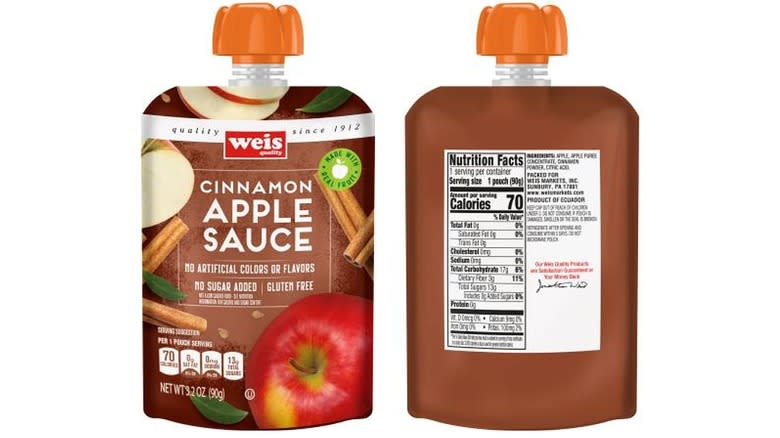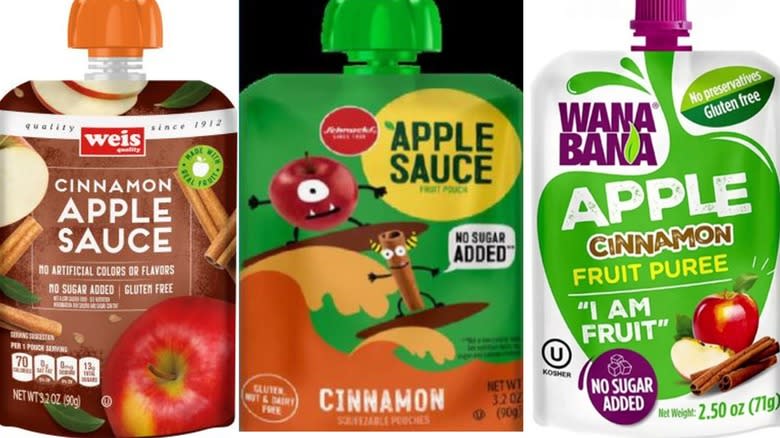Applesauce Pouch Recall Expands After High Levels Of Lead Cause Illness

Various applesauce products are being recalled across the country due to the risk of elevated lead levels. The items include WanaBana Apple Cinnamon Fruit Puree pouches, Schnucks brand Cinnamon-flavored Applesauce pouches, and Weis brand Cinnamon Applesauce pouches. The recall comes after four children who consumed one of the affected products showed signs of "acute lead toxicity"(via the FDA). An investigation by North Carolina health officials led to the discovery of extremely high lead concentrations in WanaBana Apple Cinnamon Fruit Puree, which the state's health department established to be a potential source of exposure among the affected children.
On October 28, the United States Food and Drug Administration (FDA) issued a public health alert regarding the WanaBang brand snacks, which are sold through national and online retailers including Sam's Club, Amazon, and Dollar Tree. On November 3, however, the FDA, alongside the Centers for Disease Control and Prevention (CDC), expanded its recall warning to include the Schnucks and Weis brand apple puree pouches. The Schnucks items are sold at Schnucks and Eatwell Markets, while the Weis products can be found at Weis grocery stores.
In its latest alert, the agency added that it has received additional illness reports from consumers, which it was investigating in connection to the applesauce products. Consumers are advised to discard these items immediately and contact a healthcare provider if they or a family member consumed the tainted products or are showing signs of lead toxicity.
Read more: 13 Simple Tricks To Pick The Best Fresh Fruit Every Time
Lead Contamination In Food Is An Ongoing Issue

Lead is a naturally occurring heavy metal that makes its way into our food through everything from soil to water. Despite its ubiquity in the environment, though, lead is a known toxin for humans and can cause long-term health issues including an increased risk of high blood pressure, cardiovascular problems, and kidney damage. Per the World Health Organization (WHO), no level of lead exposure is considered safe for any humans, with "young children and women of childbearing age" being the most vulnerable to its effects. High levels of lead exposure in children in particular can lead to serious damage to the brain and nervous system, resulting in convulsions, coma, or even death.
Although it's a known risk, lead occurrence in food is still a problem. In December 2022, a Consumer Reports study found alarming amounts of lead in some chocolate products from popular brands, including Hershey, which subsequently faced a lawsuit for purportedly misleading customers.
Since the 1980s, the FDA has worked to reduce the presence of lead in consumer products, but given the higher risk that lead exposure poses to children, the FDA recently launched a special program to crack down on lead and other contaminants in baby food and other snacks eaten by small children. Per the FDA, the program involves the development of new and improved testing methods and the adoption of agricultural and processing best practices to reduce the amount of environmental contaminants.
Read the original article on Tasting Table.

